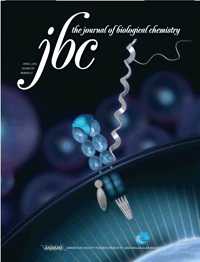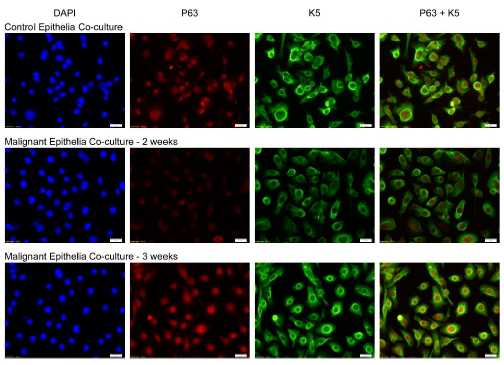Lancet:即时检测开启抗血小板个体化治疗的大门
2012-04-10 爱唯医学网 爱唯医学网
随机的概念验证性研究——RAPID-GENE试验显示,一种新的快速即时遗传学检查可能有助于在经皮冠脉介入(PCI)之后实施个体化的抗血板治疗,使我们能更好地在抗血小板治疗的收益与风险之间取得平衡。这一结果3月29日在线发表于《柳叶刀》上。 加拿大渥太华大学心脏研究所的Jason D. Roberts 博士的这篇研究论文显示,200例接受PCI的急性冠脉综合征(ACS)或稳定性心绞痛患者,被平分为
随机的概念验证性研究——RAPID-GENE试验显示,一种新的快速即时遗传学检查可能有助于在经皮冠脉介入(PCI)之后实施个体化的抗血板治疗,使我们能更好地在抗血小板治疗的收益与风险之间取得平衡。这一结果3月29日在线发表于《柳叶刀》上。
加拿大渥太华大学心脏研究所的Jason D. Roberts 博士的这篇研究论文显示,200例接受PCI的急性冠脉综合征(ACS)或稳定性心绞痛患者,被平分为标准治疗组和个体化治疗组。标准治疗组中的所有患者都使用氯吡格雷;个体化治疗组患者则接受针对CYP2C19*2无功能等位基因(导致氯吡格雷对血小板P2Y12受体的抑制不足,并增加主要不良事件风险)的快速遗传分型检查,携带该等位基因者使用新型P2Y12抑制剂普拉格雷,而非携带者仍使用氯吡格雷。所有受试者同时也使用阿司匹林。标准治疗组所有患者和个体化治疗组非携带者的氯吡格雷用量均为75 mg/d,个体化治疗组携带者的普拉格雷用量为10 mg/d。研究者采用的是Spartan生物科技公司的RX CYP2C19床旁检查技术评估口腔拭子样本中的CYP2C19*2等位基因,临床医生不必接受特殊培训即可开展该技术,并在1 h内获得检测结果。
结果显示,标准治疗组和个体化治疗组分别有25%和24%的患者携带至少1个CYP2C19*2等位基因。在二联抗血小板治疗1周后,接受标准治疗的CYP2C19*2携带者中近1/3仍然处于血小板高反应性状态[定义为P2Y12反应性单位(PRU)值超过234],后者是心血管不良事件风险增加的标志。而接受个体化治疗的携带者中,无1例存在血小板高反应性。
在二联抗血小板治疗1周后,携带者中仍存在血小板高反应性者的比例——该试验的主要终点,个体化治疗组明显更低(0% vs. 30%)。在采用PRU值为208界定血小板高反应性时,仍得出了相似结果(4% vs. 48%)。此外,与直接DNA排序这一参考标准相比,即时遗传学检测具有极高的敏感性(100%)和特异性(99%)。
“我们的发现提示,个体化抗血小板治疗或可减少不良缺血结局;仅对高危患者使用普拉格雷也可有效减少出血事件。即时遗传学检查的发展将使遗传学得以与临床实践紧密结合,显示出药物遗传策略的价值。我们已经迈出了重要且成功的第一步。”
马里兰大学的Amber L. Beitelshees博士在随刊述评中指出,在临床推广氯吡格雷药物遗传学检测并不顺利,RAPID GENE研究的结果为我们提供了巨大的动力。但她也指出,这项研究采用的是体外血小板聚集这一替代终点,因而不能确定遗传分析指导的治疗能否确实改善主要心血管预后。(生物谷 bioon.com)

doi:10.1016/S0140-6736(12)60161-5
PMC:
PMID:
Point-of-care genetic testing for personalisation of antiplatelet treatment (RAPID GENE): a prospective, randomised, proof-of-concept trial
Jason D Roberts M, Prof George A Wells Ph, Prof Michel R Le May MD, Prof Marino Labinaz MD, Chris Glover MD, Michael Froeschl MD, Alexander Dick MD, Prof Jean-Francois Marquis MD, Prof Edward O'Brien MD, Sandro Goncalves MD, Irena Druce MS, Alexandre Stewart PhD, Michael H Gollob MD, Dr Derek YF So MD
Background Prospective assessment of pharmacogenetic strategies has been limited by an inability to undertake bedside genetic testing. The CYP2C19*2 allele is a common genetic variant associated with increased rates of major adverse events in individuals given clopidogrel after percutaneous coronary intervention (PCI). We used a novel point-of-care genetic test to identify carriers of the CYP2C19*2 allele and aimed to assess a pharmacogenetic approach to dual antiplatelet treatment after PCI. Methods Between Aug 26, 2010, and July 7, 2011, 200 patients were enrolled into our prospective, randomised, proof-of-concept study. Patients undergoing PCI for acute coronary syndrome or stable angina were randomly assigned to rapid point-of-care genotyping or to standard treatment. Individuals in the rapid genotyping group were screened for the CYP2C19*2 allele. Carriers were given 10 mg prasugrel daily, and non-carriers and patients in the standard treatment group were given 75 mg clopidogrel daily. The primary endpoint was the proportion of CYP2C19*2 carriers with high on-treatment platelet reactivity (P2Y12 reactivity unit [PRU] value of more than 234) after 1 week of dual antiplatelet treatment, which is a marker associated with increased adverse cardiovascular events. Interventional cardiologists and data analysts were masked to genetic status and treatment. Patients were not masked to treatment allocation. All analyses were by intention to treat. This study is registered with ClinicalTrials.gov, NCT01184300. Findings After randomisation, 187 patients completed follow-up (91 rapid genotyping group, 96 standard treatment). 23 individuals in each group carried at least one CYP2C19*2 allele. None of the 23 carriers in the rapid genotyping group had a PRU value of more than 234 at day 7, compared with seven (30%) given standard treatment (p=0·0092). The point-of-care genetic test had a sensitivity of 100% (95% CI 92·3—100) and a specificity of 99·3% (96·3—100). Interpretation Point-of-care genetic testing after PCI can be done effectively at the bedside and treatment of identified CYP2C19*2 carriers with prasugrel can reduce high on-treatment platelet reactivity.
本网站所有内容来源注明为“梅斯医学”或“MedSci原创”的文字、图片和音视频资料,版权均属于梅斯医学所有。非经授权,任何媒体、网站或个人不得转载,授权转载时须注明来源为“梅斯医学”。其它来源的文章系转载文章,或“梅斯号”自媒体发布的文章,仅系出于传递更多信息之目的,本站仅负责审核内容合规,其内容不代表本站立场,本站不负责内容的准确性和版权。如果存在侵权、或不希望被转载的媒体或个人可与我们联系,我们将立即进行删除处理。
在此留言














#Lancet#
68
#个体化治疗#
78
#个体化#
67